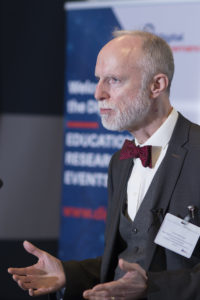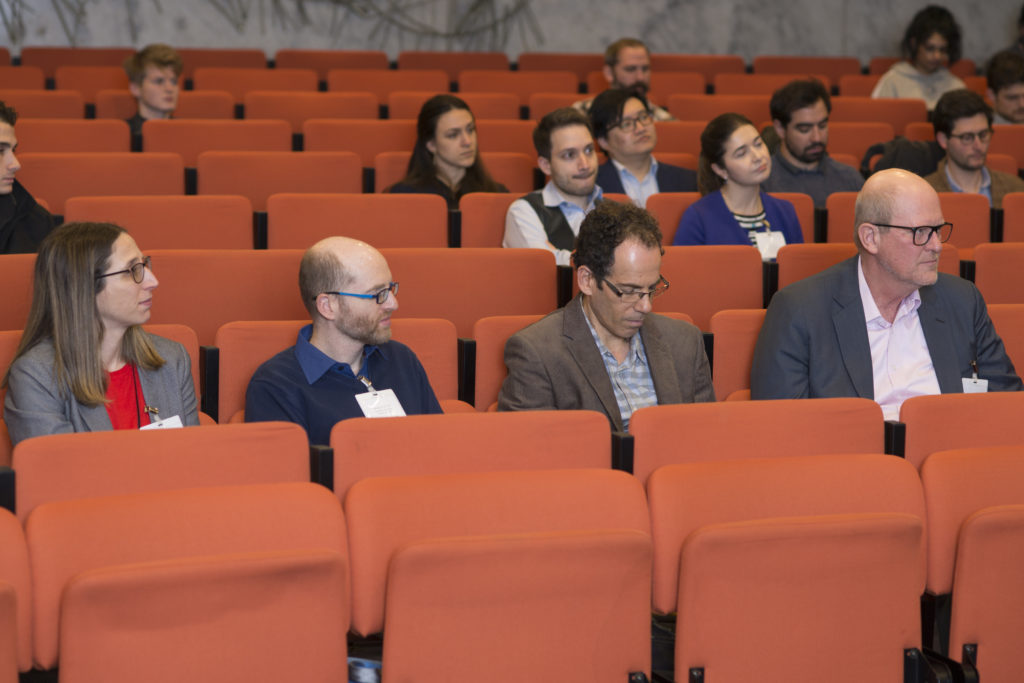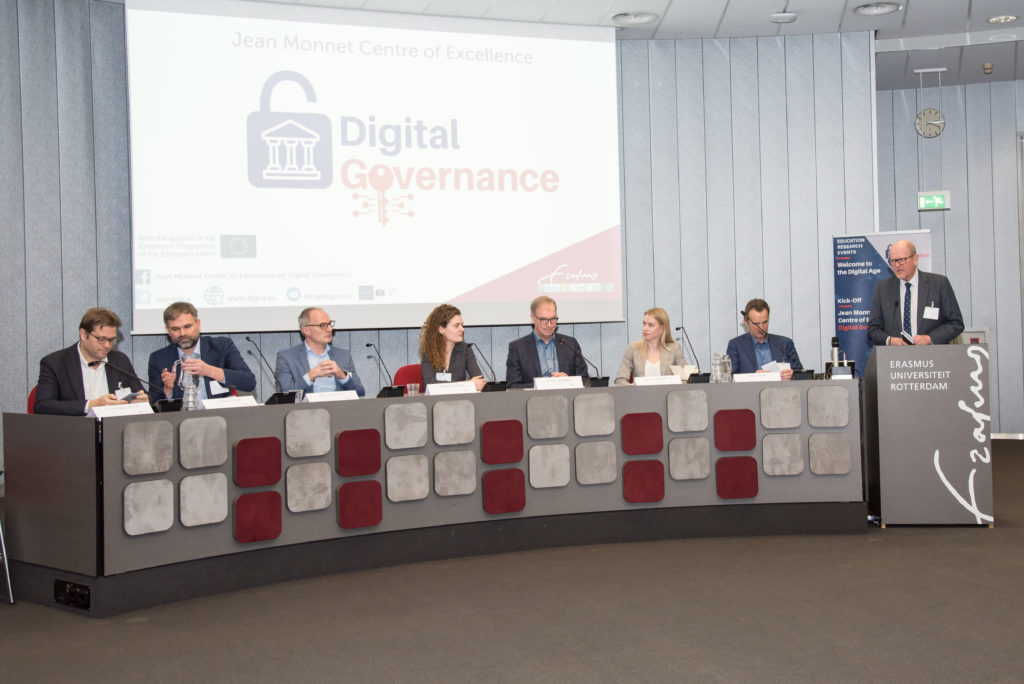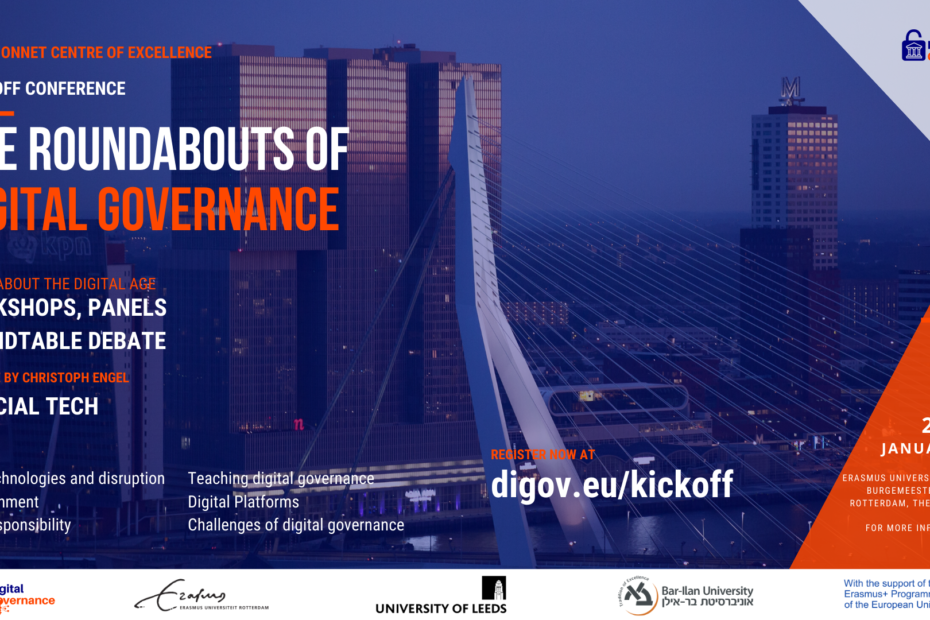On 28-30 January 2020 the kick-off conference ‘The Roundabouts of Digital Governance’ of the Jean Monnet Centre of Excellence on Digital Governance (DIGOV) took place. It brought scholars from multiple academic backgrounds and from around the globe to Erasmus University Rotterdam. The conference was joined by participants from business, NGOs and public policy.
Big Data, Artificial Intelligence, Robots, 3D-Printing, the Smart Factory, Autonomous Cars or Chat Bots. These terms are short cuts for the technological and social disruptions with which we are confronted at our workplaces, at home, at school, when we are buying something on the internet or if we take part in elections. The new EU Commission under Von der Leyen has identified digitalisation and digital governance as one of its main priorities for the upcoming years.
The kick-off conference of DIGOV focused on the perimeter of digital governance. The conference worked on an inventory of the hot-spots of digital governance. Best practices and approaches were identified to get a grip on the challenges of the ongoing digital transformation in Europe and abroad.

On Tuesday afternoon, 28 January, the conference was opened by Rutger Engels, Rector Magnificus of Erasmus University Rotterdam, followed by a keynote lecture of Christoph Engel (Erasmus School of Law and Director Max Planck Institute on Collective Goods, Bonn) on Judicial Tech. In his keynote speech Christoph Engel was concerned with the question that judges can surely benefit from computer generated input, in particular if legal doctrine conditions judicial decisions on predictions. Yet, this requires that judges adequately process computer advice. Experimental evidence cast doubt on this. Typical court cases are ill-defined. Human intuition is surprisingly good at nonetheless making meaningful choices. The keynote presented a recent experiment supporting this claim.
On Wednesday, 29 January, the leading theme was ‘The scope of proper digital government: Fading intrajurisdictional boundaries between public and private governance?’. In three panels two presentations were given. Panel 1 focused on ‘New technologies and their disruptive impact on economic integration’ (by Klaus Heine, Erasmus University Rotterdam, and Wouter Verheyen, University of Antwerp). Panel 2 discussed ‘E-government – liquid democracy and tight administration’ (by Oren Perez and Ittai Bar-Siman-Tov, both Bar-Ilan University), whereas Panel 3 dealt with ‘Teaching digital governance – blending the digital curriculum’ (by Farshida Zafar and Kris Stabel, both Erasmus University Rotterdam). Each presentation was followed by a plenary discussion, which continued during the conference dinner that evening.

On Thursday, 30 January, the leading theme was ‘Data on the flight: Is there still a jurisdiction for the digital? In the morning two further panels took place. Panel 4 discussed ‘Digital Platforms: Competition and Regulation’ (by Pinar Akman, University of Leeds, and Ayelet Sela, Bar-Ilan University). Panel 5 focused on ‘Data all over the place; but who is responsible?’ (by Evert Stamhuis, Erasmus University Rotterdam and Freek Bomhof, TNO – Netherlands Organisation for Applied Scientific Research).

Finally, in a Roundtable on ‘Mapping digital governance – Intra and cross jurisdictional challenges for law and policy making in the EU and beyond’ with Sara Kemppainen (I4ADA), Anna Keuning (Erasmus School of Law), Patrick Spigt (Haarlem Municipality), Christoph Steck (Telefónica), Bart Vrancken (De Volksbank), Hub Zwart (Erasmus School of Philosophy) moderated by Gerrit Schipper (Erasmus Centre for Data Analytics).
The three day conference was closed by the Dean of Erasmus School of Law, Suzan Stoter.
This conference was made possible with the financial contribution of the Erasmus+ programme of the European Union, Erasmus School of Law (ESL), the Erasmus Initiative Dynamics of Inclusive Prosperity (DoIP) and the research programme Behavioural Approaches to Contract and Tort (BACT).
The kick-off meeting was only the start of this three year programme, financed by the European Commission. DIGOV asks which rules and norms are needed to enable Big Data and Artificial Intelligence to fully support our individual and societal interests. To that aim DIGOV organises international conferences, workshops, a visiting scholar programme, policy consultations and builds up an open teaching platform.
The next event in this series will be a workshop where the leading theme will be ‘Ethical AI: Perspectives on Regulation’, organised by the University of Leeds in October 2020. Due to the current COVID-19 restrictions, this will be a virtual workshop. This also gives the opportunity to join from abroad (without travelling).

Like!! I blog quite often and I genuinely thank you for your information. The article has truly peaked my interest.